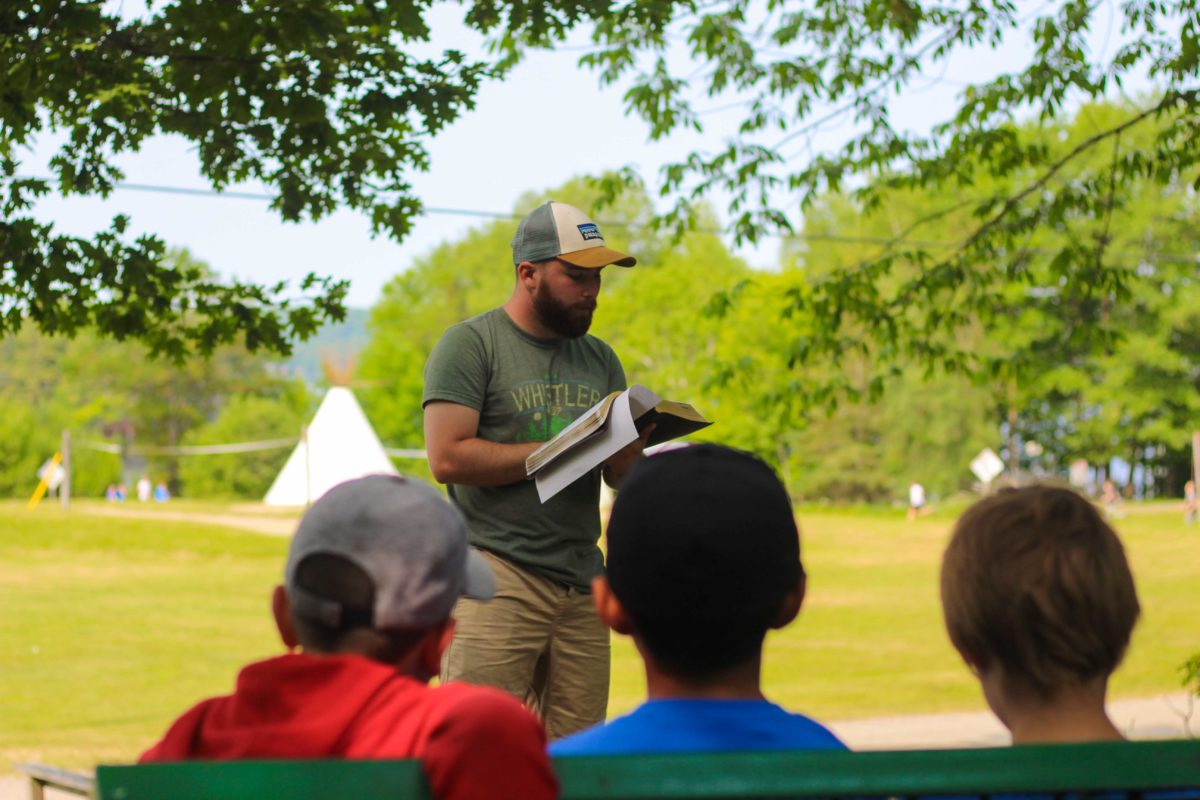Hello Hello. We are just a few days away from our reunion retreat. We hope you are coming and you should bring a friend.
But in the meantime, we are entering the last chapter of our Philippians bible study. As a refresher, this letter came from Paul while he was in prison. In a lot of ways Paul’s prison life stood as a critical example of an idea we have come back to over and over again “Live in a manner worthy of the Gospel.”
I’m not sure we have really highlighted the juxtaposition that Paul has set up in this letter because with the call to live worthy of the gospel comes an around encouragement to be unified, to be one community of love and to share in that blessing together. These two ideas are placed side beside because, in Paul’s experience, living in a manner worthy of the gospel will inevitably lead down the road to prison and death. Now, we generally don’t have such a high price to pay but the idea remains: we should cherish what we have now as faithful servants of the gospel because that service may lead us down harder, more lonely roads.
I mean think about it: Paul is writing a letter to a community he loves and longs to be a part of while alone in prison.
All of this goes a long way toward his conclusion of this letter in chapter 4.
Have you ever seen the Rubin Vase?
It’s this strange image that depending on whether you look at the light space or the dark space you see a different image. Look it up on your phone some time. It’s crazy. From one viewpoint you see a vase and from the other you see two faces staring at each other.
Now the Rubin Vase was the conception of the psychologist Edgar Rubin and he developed this image, and others like it, to discuss the nature of perception. The natural course of perceiving our world tends to focus in on the object and not the background. So we look at the ball and not the grass that it is on. And the Rubin Vase demonstrates that perception can be much more ambiguous as the gap between what is clearly background and foreground is lost.
The Rubin Vase is an interesting way of understanding how we perceive the world around us. And Paul in this letter (and finishing here in chapter 4) is offering an argument for keeping what matters most in the foreground of our perception.
At the centre of the problem, here in chapter 4, is a conflict.
And Paul outright names names. He calls out Euodia and Syntyche in verse 2 and despite thinking great things about them (having served with them in the past) he lays it out that they need to get over the thing that has come between them. And get a good perspective on their situation.
And from here Paul launches in three important examples of having the right perspective. You know in my study, as I read through the text and tried to find common threads and key phrases, I found that there was a significant amount of language around the “peace of God,” of “guarding your hearts,” of being “strengthened,” and of having our needs met.” And I’ll be honest in every case I do not fully understand the correlation between what Paul is telling us to do and how that thing does it.
Let me give you an example
Verses 6-7 lay out some clear instruction:
“Do not be anxious about anything, but in everything by prayer and supplication with thanksgiving let your requests be made known to God. And the peace of God, which surpasses all understanding, will guard your hearts and your minds in Christ Jesus.”
Now I understand the words as they are written. It’s clear enough that prayer and thanksgiving are connected to my anxieties and that God will respond to them. There is an internal logic to what Paul is saying that makes sense to me.
But in practice, I am suspicious. It doesn’t feel like it always works out this way. To say it another way: I’m anxious about my prayers helping my worries. And I’ll be honest I approached theses verses this way for a long time. It seemed so cut and dry: worry is met with prayer and God responds. If I pray then God will do something.
But this way of looking at these verses is missing something of the larger point and reflects the cultural upbringing that tells me the things I do, like prayer, have worth only by their outcomes.
There is a different way to look at this short passage:
What if instead of being a logical flow from worry, to prayer, to divine action we saw this passage as distinct statements about reality? Paul is trying to tell us the truth about how real-life plays out.
- Do not be anxious but pray.
- God will guard your heart.
You’ll notice between the two statements in the passage there is an “and” not a “then.” The correlation between these two ideas is not that one leads into the other but that both are important to understand to have a good perspective.
God will respond to our needs that is the gospel. Right, Jesus came to restore us, redeem us, and to defeat death. And that was not because of our prayer lives but because that is who God is and today, amidst conflicts, confusions, and the struggles of human existence, God still is responding to our needs.
Returning to the idea of having a right perspective Paul is rightly addressing the things that challenge us and directing that worry into prayer but beyond these challenges, there is a guarantee built into the person of Jesus: that God is in control and will respond.
From here moving toward the end of the chapter Paul examines a few other examples of how to have a good perspective: focusing on the good, relying on each other, and the ultimate providence of God over the big picture and the little challenges they face.
So my question is this:
- What sort of perspective do you have over your life?
- Are you keeping your eyes open for the good things that God is doing?
- Are you celebrating the glimmers of hope (even when life may feel overwhelmingly hopeless)?
I want to be clear. Life is not always easy, and it’s hard to sometimes see the light of Jesus in the darker corners of our world. But just because we struggle to see what God is doing it doesn’t mean that we should forget what God has done or lose sight of the truth that God, consistent in his nature, will continue to shine as brightly as he can into our lives and the world around us.
I want to thank you for joining me in our study of Philippians.
I hope you’ve learned some things and been able to put into practice some of our lessons on how to study your bible. If you are looking for a good place to go next I’d recommend studying the book of John. It’s a great telling of Jesus’ life and will set you up nicely for the coming Easter season.
Further, As we grow and learn together, I want these audio check-ins to be a support to you. If you have any big questions or any topics that you want to know more about. Let us know.
We are on your team. You can reach Hannah by email at hannah@miniyowe.com.
Like Paul, I want to encourage you to keep your eyes focused on what matters most, to see the ways that God is working in your life, and to be unified in the Christian community. I believe in you and I think you are ready to step further and farther into your faith. While you do that: keep being awesome.
This post is part of our Leap of Faith Audio Check-ins. We want to encourage you to leap into your faith and continue to grow at home, at school, and in your church. These audio check-ins are meant to encourage you as live out your faith every day.
Want to keep growing?
There are more episode of Leap of Faith and other resources for you to grow in your leadership and faith here.

